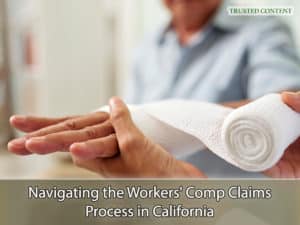What to Do When Your Employer Doesn’t Have Workers’ Comp Insurance in California
In California, workers’ compensation insurance provides essential protection for employees injured on the job, covering medical expenses, lost wages, and rehabilitation costs. However, when an employer fails to carry this mandatory insurance, it can leave injured workers uncertain about their rights and options for recovery. This article outlines the steps and legal avenues available to those facing such a predicament, ensuring they understand how to navigate this complex situation.

Understanding Your Legal Rights after a Work Injury in California
Understanding Your Legal Rights after a Work Injury in California
California law mandates that all employers provide workers’ compensation insurance for their employees. This requirement is designed to ensure that workers injured on the job receive prompt and effective medical treatment and compensation for lost wages. When an employer neglects this obligation, they not only violate state law but also jeopardize the well-being of their employees. In such cases, injured workers have the right to seek compensation through both civil action against their employer and a workers’ compensation claim.
The Dual Path for Compensation
Filing a Civil Lawsuit
When an employer is found without workers’ compensation insurance, the injured employee has the right to file a civil lawsuit. This legal action can seek damages for pain and suffering, medical expenses, lost wages, and punitive damages, which are not available through traditional workers’ compensation claims. The absence of workers’ compensation insurance removes the employer’s immunity from civil lawsuits, typically provided under the workers’ compensation system.
Pursuing a Workers’ Compensation Claim
Simultaneously, injured workers can file a claim with the California Uninsured Employers Benefits Trust Fund (UEBTF). This fund is designed to provide financial assistance to workers injured while employed by illegally uninsured employers. Filing a claim with the UEBTF can help recover costs for medical care, disability benefits, and lost wages, similar to what would be available under a standard workers’ compensation policy.

Navigating the Workers’ Comp Claims Process in California
Navigating the Workers’ Comp Claims Process in California
Seeking Legal Assistance
Navigating the legal landscape of workers’ compensation and civil claims can be daunting, especially when dealing with the stress of an injury. Seeking the guidance of an experienced personal injury lawyer can provide clarity and direction. A lawyer can help evaluate the specifics of your case, advise on the best course of action, and represent your interests in negotiations or court proceedings.
Gathering Evidence
Successful claims require thorough documentation. This includes medical records detailing the injuries, evidence of lost wages, and any correspondence with the employer regarding the injury or their lack of insurance. Additionally, documenting the conditions that led to the injury can support both your civil lawsuit and workers’ compensation claim.
Filing Your Claims
The process for filing a civil lawsuit and a claim with the UEBTF involves specific steps and deadlines. For a civil lawsuit, you’ll need to file a complaint in the appropriate California court. For a UEBTF claim, the application must be submitted to the Division of Workers’ Compensation. Both processes require detailed information about the injury, the employer, and the circumstances surrounding the incident.
Protecting Yourself Against Workers’ Compensation Retaliation
California law prohibits employers from retaliating against employees who seek workers’ compensation benefits or pursue legal action for injuries sustained on the job. If you face retaliation, such as termination, demotion, or harassment, you have the right to file a complaint with the California Labor Commissioner’s Office. Legal remedies for retaliation may include reinstatement, back pay, and compensation for any losses or damages suffered.

What to Do When Your Employer Doesn’t Have Workers’ Comp Insurance in California
What to Do When Your Employer Doesn’t Have Workers’ Comp Insurance in California
If you find yourself injured at work and discover your employer lacks the required workers’ compensation insurance, know that you are not without recourse. By understanding your rights and the dual path for compensation through both civil action and a workers’ compensation claim, you can navigate the path to recovery. For those in need of legal assistance, Napolin Accident Injury Lawyer is here to help. With our extensive litigation experience, we are committed to advocating for the rights of injured workers across California. If you’re facing this challenging situation, call us at (866)-NAPOLIN for a free consultation and take the first step towards securing the compensation you deserve.
- Medical Liens in California Personal Injury Claims Explained - April 27, 2024
- Essential Tips for Bicycle Injury Prevention in California - April 27, 2024
- Understanding Who is Exempt from Workers’ Compensation in California - April 27, 2024
